Permit for Build Villa in Bali: A Complete Guide Before Starting Your Property Project in Bali
Oktarina
November 14, 2025
12 min read
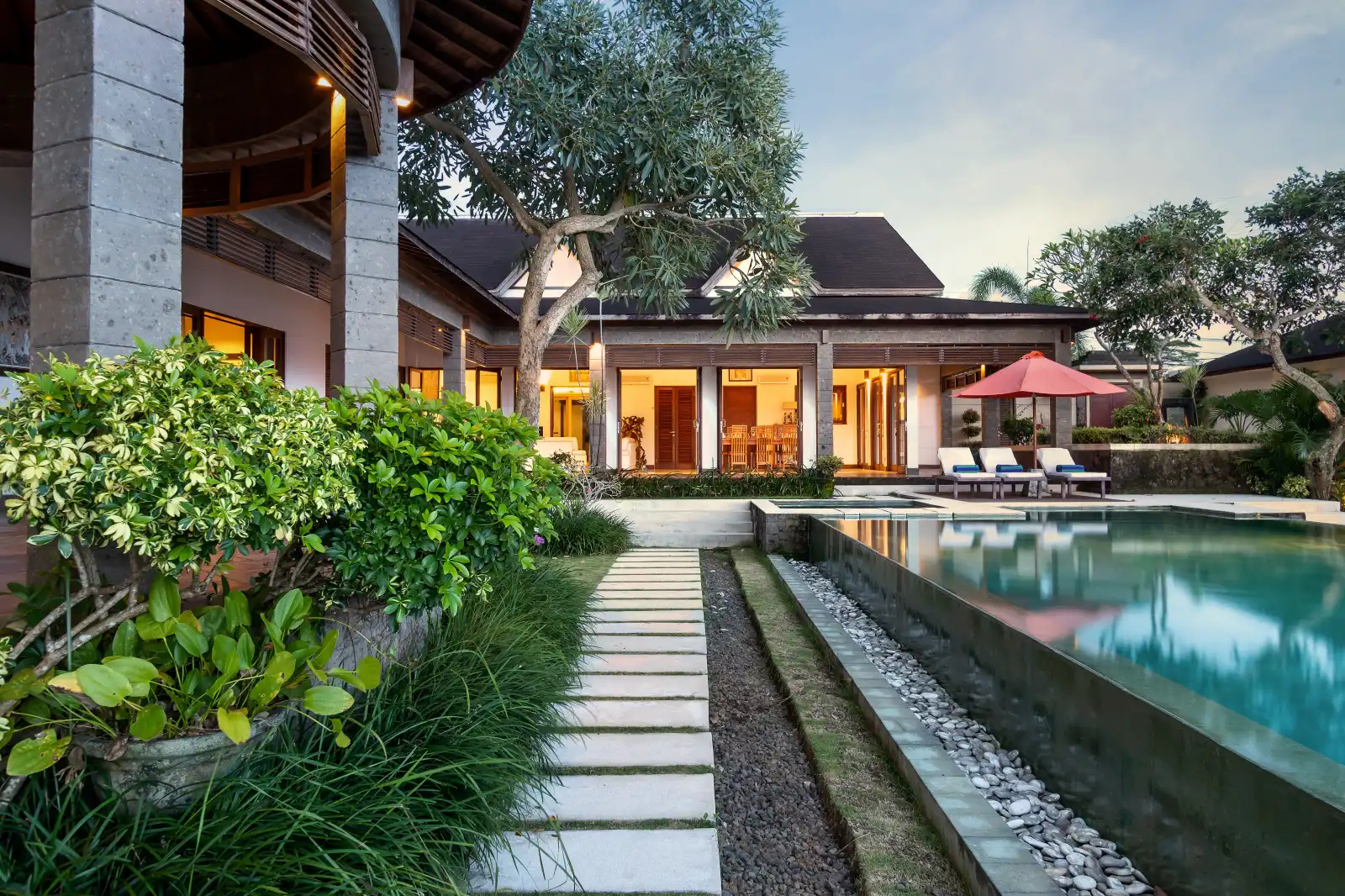
Are you planning to build a villa in Bali? Before starting your dream project, it’s important to understand everything related to obtaining a permit for build villa in Bali. Without the proper permits, the construction process could be delayed or even face legal consequences. Bali is an ideal place for property investment, with its stunning natural beauty and growing demand for luxury accommodations. However, to ensure your project runs smoothly and complies with regulations, it’s crucial to understand the steps and requirements involved.
In this article, we will discuss everything you need to know about obtaining a permit for build villa in Bali, from the required documents to the application process. With the right information, you can avoid problems down the road and ensure your villa construction goes as planned. Be sure to read through this article to get a clear understanding and start your project with the right approach.
Do You Need a Permit Before Building a Villa in Bali?
Yes, absolutely! Obtaining a permit for build villa in Bali is a crucial first step before you begin building a villa in Bali. Without a valid permit, you are not only violating the law, but you also risk damaging the investment you’ve carefully planned. Bali has strict regulations regarding property development, particularly related to environmental conservation, culture, and land use planning. These regulations are in place to maintain a balance between development and preserving Bali’s natural and cultural heritage.
Building a villa without a legal permit can lead to serious consequences, including hefty fines, long-lasting legal issues, and in the worst case, the demolition of the building. In some cases, local authorities may halt construction if violations of regulations are discovered.
Therefore, before starting your villa project, it’s essential to ensure all required permits are applied for and approved. This process involves checking land zoning, preparing environmental documents such as SPPL or AMDAL, and obtaining technical permits from the local government. By taking care of these permits from the start, you will not only comply with the law but also protect your investment and ensure the project proceeds smoothly.
What Is a Permit for Build Villa in Bali?
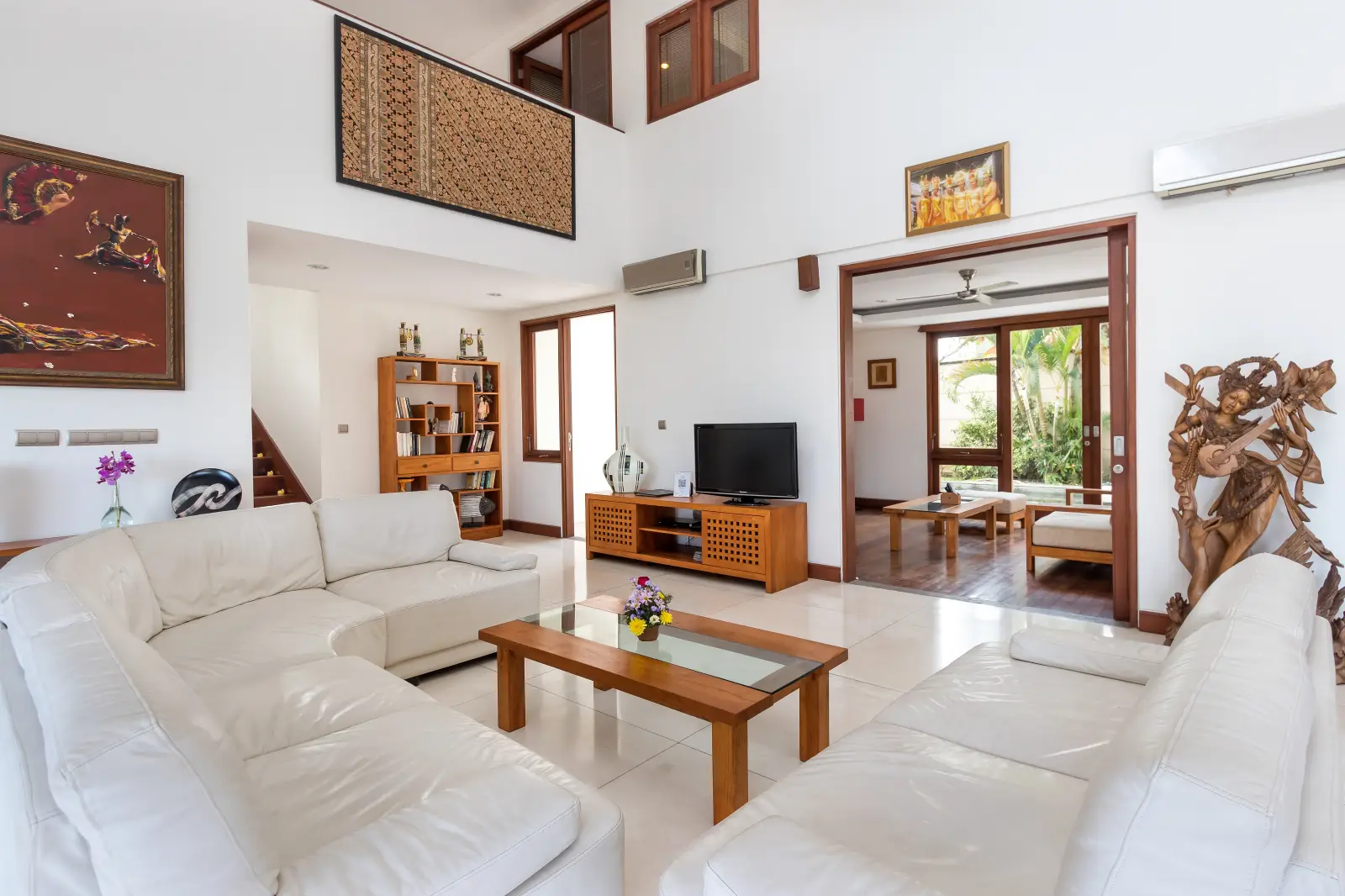
A permit for building a villa in Bali is an administrative process that must be completed before you start construction. This permit is granted by the local government to ensure that the building complies with applicable regulations and does not violate local zoning plans. Without a valid permit, your villa construction project could face legal issues and demolition.
The process to obtain a permit for building a villa in Bali is detailed and involves several steps. One key document you will need is the Building Construction Approval (PBG), which replaces the old Building Permit (IMB). This approval confirms that your building design and technical plans meet government standards and are safe for construction.
However, the process doesn’t stop at PBG. Once your villa is completed, you will also need to obtain a Certificate of Feasibility (SLF). This certificate verifies that the structure and facilities of your villa comply with safety and usability standards. In other words, SLF ensures that your villa is safe to occupy and serve its intended function.
Obtaining a permit for building a villa in Bali is essential to ensure that your construction project proceeds in compliance with the law. It offers legal protection for your investment and prevents future issues. Additionally, the permit helps protect the environment and Bali’s cultural heritage, which are central to the land use and zoning regulations.
By adhering to all the requirements and obtaining the necessary permits, you can build your villa with peace of mind, avoiding legal problems or the risk of having your building demolished in the future. Therefore, the permit process is not just important for the smooth running of the project but also to ensure your villa construction is sustainable and aligned with the values upheld in Bali.
General Requirements for Obtaining a Permit for Build Villa in Bali
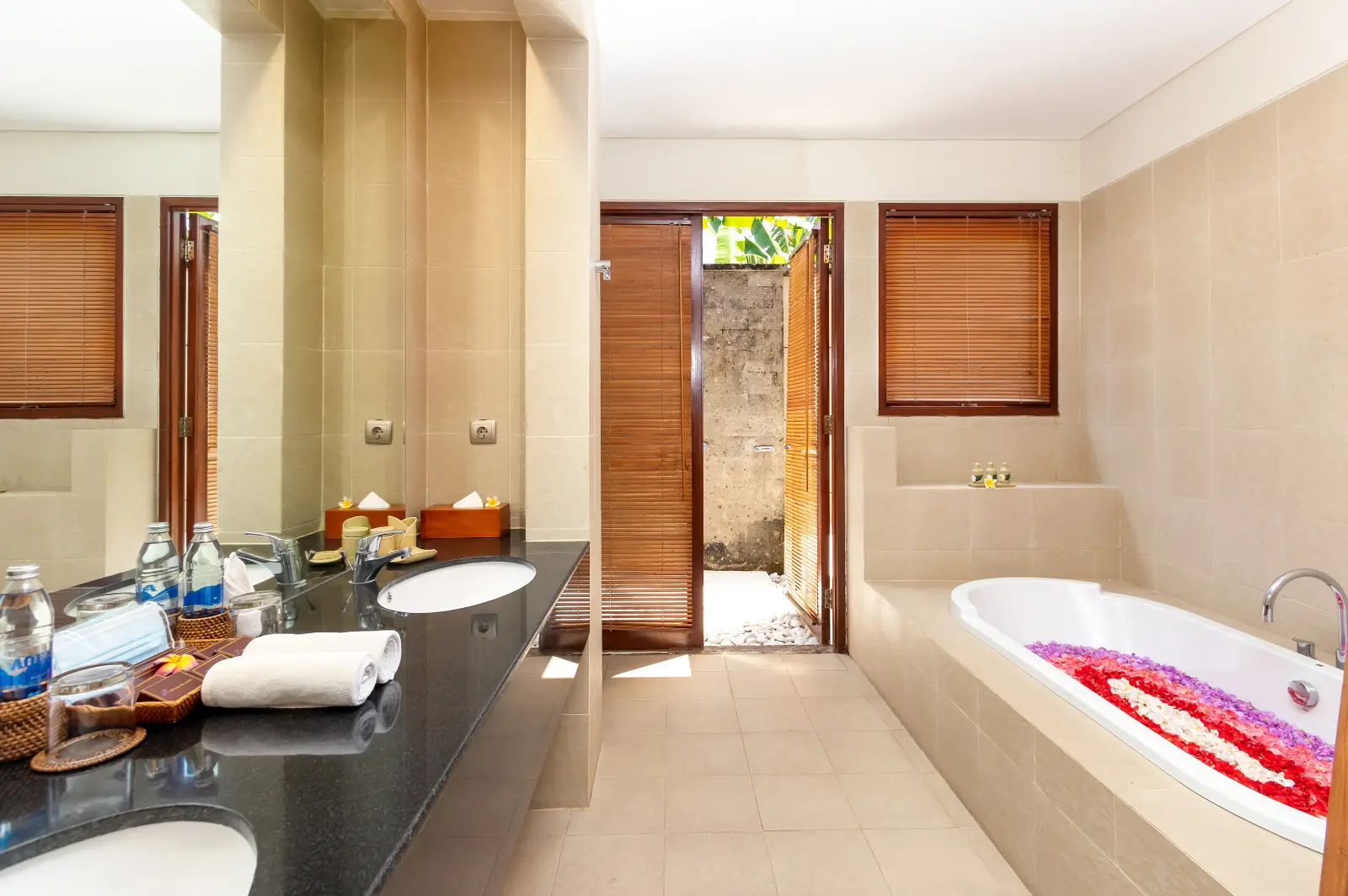
Before applying for a permit for building a villa in Bali, there are several general requirements you need to meet to ensure a smooth process. Each step of the application requires careful attention to detail, from the land status to the design’s compliance with regulations. Here are the key factors you need to consider:
1. Land Ownership
The first thing you need to verify is the status of the land you plan to use for construction. Land with freehold (SHM) or right to build (HGB) titles is generally easier to apply for permits because these titles comply with existing regulations. Also, make sure that the land is not located in an area restricted for development, such as agricultural zones, conservation areas, or protected land. Always check the land certificate to confirm its status and avoid legal problems down the road.
2. Required Documents
After confirming the land status, you’ll need to prepare several required documents for your permit application. Essential documents include:
- Land certificate to prove you are the legitimate owner.
- Architectural design plans outlining the visual representation of the villa to be built, including floor plans and elevations.
- Environmental report if needed, particularly if the project may impact the surrounding ecosystem.
These documents must be complete, clear, and meet the local government’s requirements. Missing or incorrect documents can delay your application process.
3. Zoning Compliance
Zoning or land use designation is a key factor in determining whether your land can be developed. Bali has different zones, including residential, commercial, and conservation areas. Before applying for a permit, make sure your land is in a zone that allows villa development. If the land is in a conservation zone or protected area, the permit application process may become more complex and require additional considerations.
4. Bali Architectural Guidelines
Bali has architectural guidelines that emphasize a balance between modern and traditional designs. To ensure that your villa not only meets technical standards but also aligns with Bali’s aesthetic and cultural values, make sure your design follows the island’s architectural guidelines. The building should reflect Bali’s culture and consider the surrounding environment to maintain the island’s natural beauty and heritage.
5. Regulations for Foreign Investors
For foreign investors planning to build a villa in Bali, there are specific rules regarding land ownership. Generally, foreign investors cannot directly own land in Bali. However, they can hold the right of use or work with a local PMA company (foreign investment company) that is legally allowed to own land in Indonesia. Through this partnership, foreign investors can legally build property.
Read more: Invest in Bali: Property Options for Promising Business Opportunities
The Process of Applying for a Villa Construction Permit in Bali
The process of applying for a villa construction permit in Bali involves several steps that must be followed carefully and thoroughly. Each stage should be carried out in accordance with the established procedures to ensure that your villa construction proceeds smoothly and in compliance with the regulations. Here are the steps you need to take:
1. Apply for the Location Permit (SIL)
The first step is to apply for the Location Permit (SIL) from the local government. This permit ensures that the land you have chosen is suitable for villa construction according to the designated zoning regulations. Bali has strict zoning regulations that determine the type of land use in each area, such as for residential, commercial, or tourism purposes. If your land is in a suitable zone, the permit process will proceed more smoothly.
2. Prepare the Building Plan (RTB)
After obtaining the SIL, the next step is to prepare the Building Plan (RTB). This plan should include the building design, layout, and all technical details regarding the structure of the villa to be built. Make sure that your villa design not only meets technical standards but also adheres to Bali’s architectural guidelines. Bali has specific guidelines that emphasize a balance between modern and traditional architecture, as well as harmony with the local environment and culture. Following these guidelines will ensure your villa is not only safe and comfortable but also blends seamlessly with Bali’s aesthetic.
3. Apply for the Building Permit (IMB)
Once the RTB is prepared and in compliance with the guidelines, you can apply for the Building Permit (IMB) from the Urban Planning or Public Works Department. At this stage, the government will review the technical plans again to ensure the building design and structure meet safety and comfort standards. The IMB is a crucial permit because without it, the construction of your villa cannot legally begin.
4. Environmental Impact Assessment (AMDAL) Process
If your villa project has the potential to cause significant environmental impact, you will need to conduct an AMDAL (Environmental Impact Assessment). This process involves evaluating the environmental impact of the construction project and the measures that will be taken to mitigate negative effects. AMDAL is usually required for large projects or those that could affect the surrounding ecosystem, such as water usage, waste management, or disruptions to local flora and fauna. If necessary, you will need to prepare an Environmental Management Plan (UKL/UPL).
5. Obtain the Building Approval (PBG)
After completing the previous steps and ensuring all requirements are met, you will receive Building Approval (PBG) from the local government. The PBG is the final permit that allows you to begin construction. Without this approval, villa construction cannot proceed legally.
6. Certificate of Feasibility (SLF)
Once the villa construction is completed, the final step is to undergo inspection to ensure the building meets the established standards. The local government will assess whether the villa’s structure and facilities comply with the regulations. If everything is in order, you will receive the Certificate of Feasibility (SLF), which indicates that the villa is ready to be used.
Challenges Faced During the Permit Process for Build a Villa in Bali
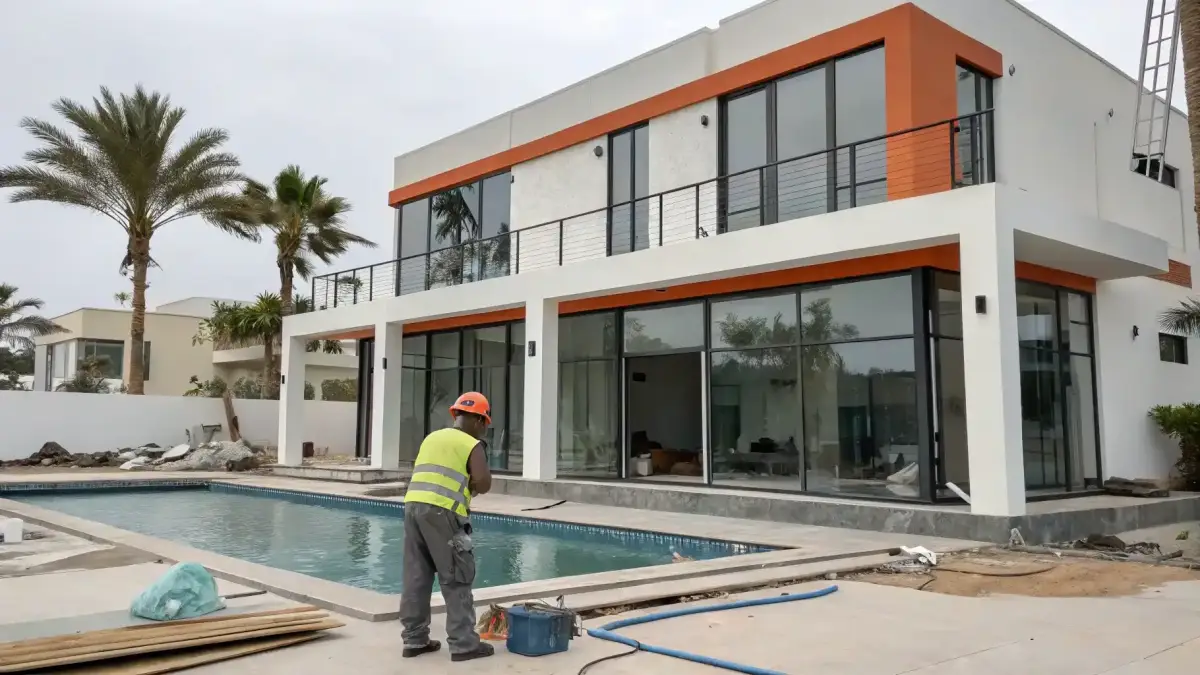
Although the process of applying for a permit for build a villa in Bali may seem straightforward, there are several challenges that may arise during this process, which could affect the smooth progress of your construction project. Here are some common challenges:
- Bureaucracy
The permit application process can be very bureaucratic and time-consuming. Missing or incorrect documents can cause delays, which can be a significant obstacle, especially for developers who are unfamiliar with local procedures. - Strict Regulations
Bali has very strict regulations, particularly when it comes to preserving culture and the environment. Some areas, like conservation zones and coastal regions, have even stricter regulations that limit development. Changes in local policies can also affect your development plans, so it’s essential to stay updated on the latest regulations. - Long AMDAL Process
If your project impacts the environment, an AMDAL study must be conducted. This process can take time due to the in-depth environmental evaluation required, especially for larger projects or those in sensitive areas. Delays in the AMDAL process are often a major hurdle. - Long Application Process
The permit application review process can take a long time, especially if any documents are incomplete or if changes in regulations need to be considered. This often leads to unexpected delays in your villa construction. - Land Zoning and Use Issues
Zoning and land use issues can be a significant problem. Some lands that seem suitable for building a villa may not comply with local zoning regulations. Land in conservation or green zones typically faces rejection during permit applications. - Compliance with Environmental Regulations
Bali has strict regulations related to construction in coastal or green areas. If your villa is located in a sensitive area, you must ensure your project meets the strict environmental requirements.
Tips for Smooth Permit Application for Build a Villa in Bali
While the process of applying for a permit for build a villa in Bali can be challenging, the following tips will help make it easier and faster:
- Use a Local Consultant
Hiring an experienced consultant can significantly simplify the permit application process. Local consultants, like those offered by Bali Premium Villa, are familiar with local procedures and regulations. We’ll help you understand each step, speed up the permit process, and avoid mistakes that could delay your villa construction and renovation in Bali. - Prepare All Documents Thoroughly
Ensure that all required documents are complete and accurate before submitting your permit application. Having the right documents in place will prevent delays or other issues that could affect the permit process. - Follow Environmental Regulations
Don’t underestimate environmental regulations. Make sure that your villa project is not only safe but also environmentally friendly. Comply with all relevant requirements, including conducting an AMDAL or reporting the environmental impact of the project if necessary. Adhering to these regulations will help you avoid legal problems down the road. - Coordinate with Local Authorities
Regular communication with local authorities about the regulations and procedures in place will make the process smoother. By staying in touch, you’ll better understand what’s required for permit application and make sure everything goes according to plan.
Read more: Villa Rental Business in Bali: A Profitable Opportunity for Investors
Build Your Villa in Bali with Bali Premium Villa!
Before starting your villa construction project in Bali, it’s essential to understand the process and regulations surrounding building permits. Bali has strict regulations governing land use, environmental preservation, and ensuring the alignment of building designs with local culture. Properly handling the permit for build a villa in Bali will help you avoid legal issues, project delays, or even building demolition in the future.
To simplify and speed up the construction process, partnering with Bali Premium Villa is the best choice. With years of experience in the construction and renovation villa in Bali, we can help you manage the entire process from permit application to project completion. Our expert team is ready to offer the best solutions, ensuring your villa project meets all regulations and meets the high standards you expect.
Don’t hesitate to contact us and start planning your dream villa in Bali. Bali Premium Villa is ready to help make your project a reality with professionalism and expertise. Reach out to us now for further consultation and get the best construction solutions in Bali!

Related Article
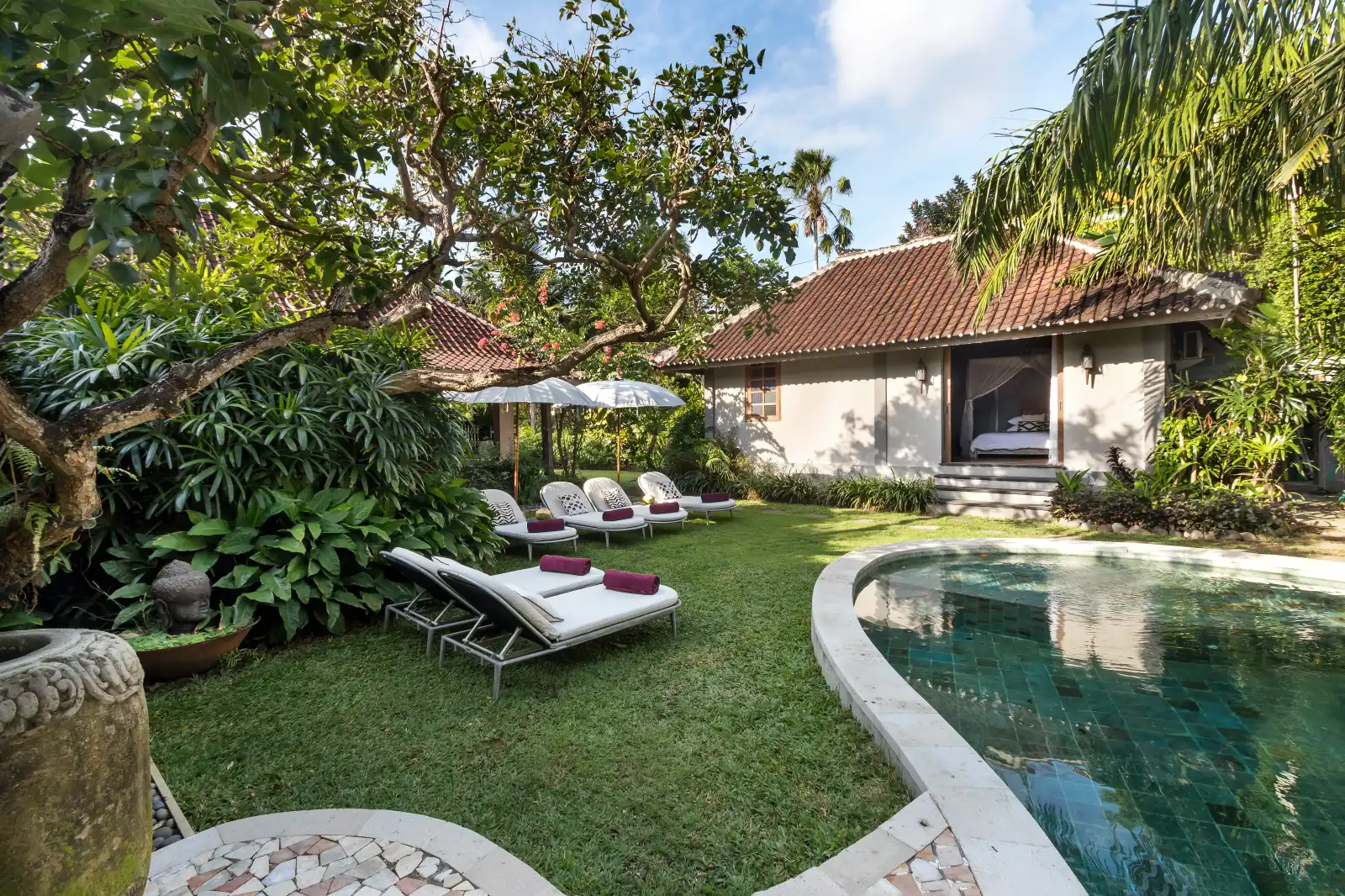
How to Choose Villa Maintenance Service in Bali? Check Here!
Have you made sure that your villa in Bali is...
Have you made sure that your villa in Bali is getting the right maintenance? How to choose villa maintenance service...
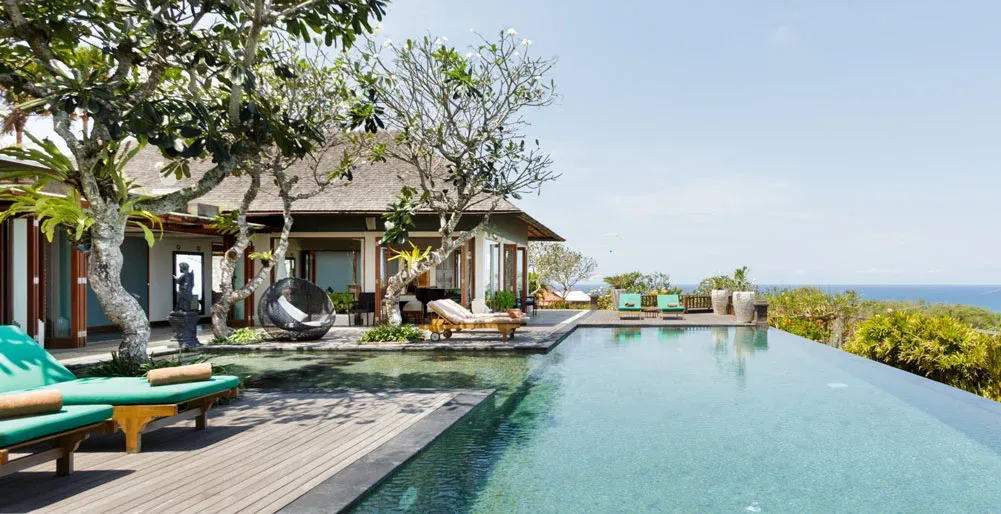
The Importance of Preventive Maintenance for Luxury Villas in Bali
Do you know that proper maintenance is key to preserving...
Do you know that proper maintenance is key to preserving the quality of your luxury villa in Bali over the...
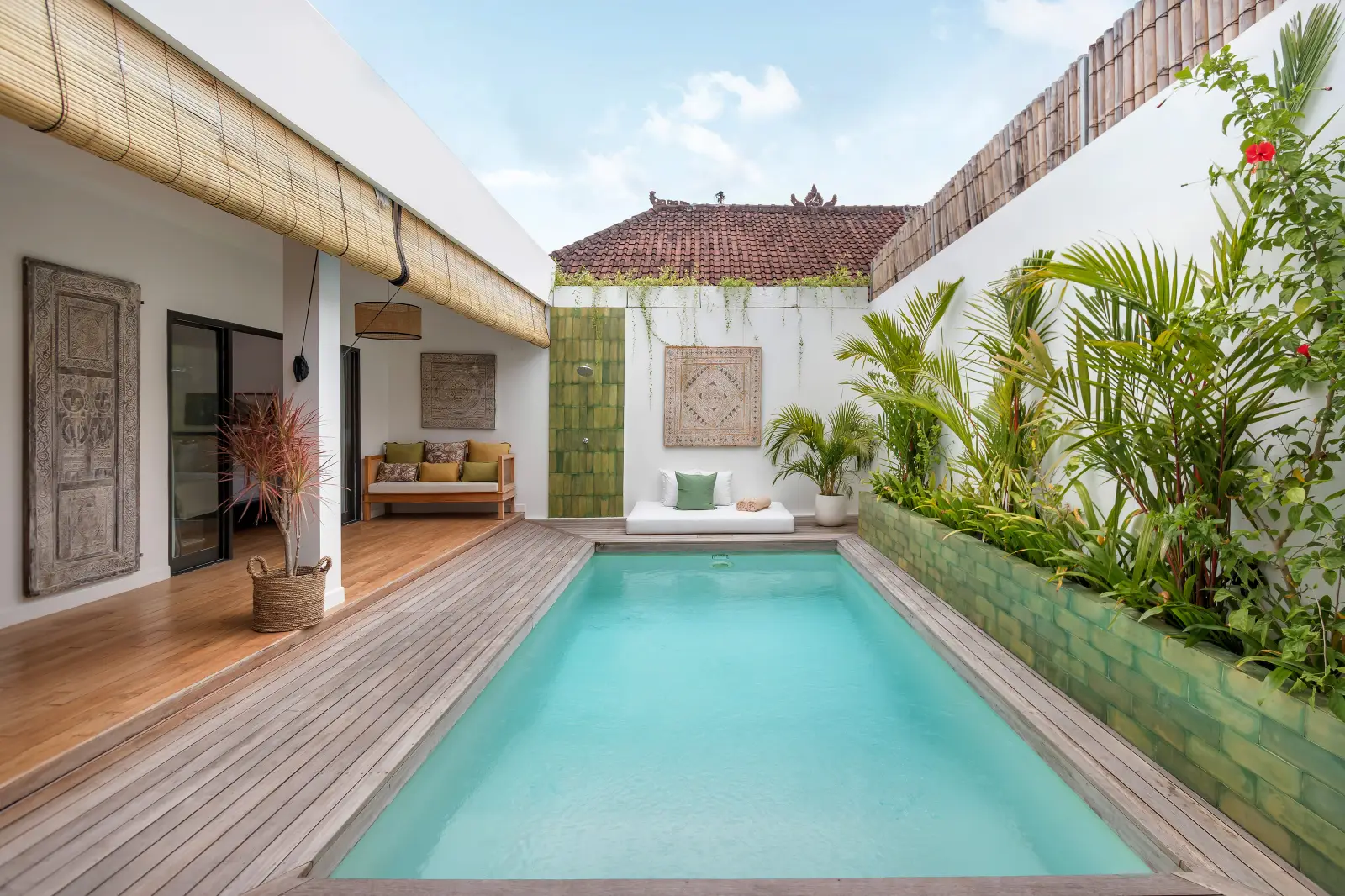
7 Interior Elements That Must Be Present in a Luxury Villa in Bali
Have you ever wondered what makes a luxury villa in...
Have you ever wondered what makes a luxury villa in Bali truly stand out in this competitive property market? Interior...
